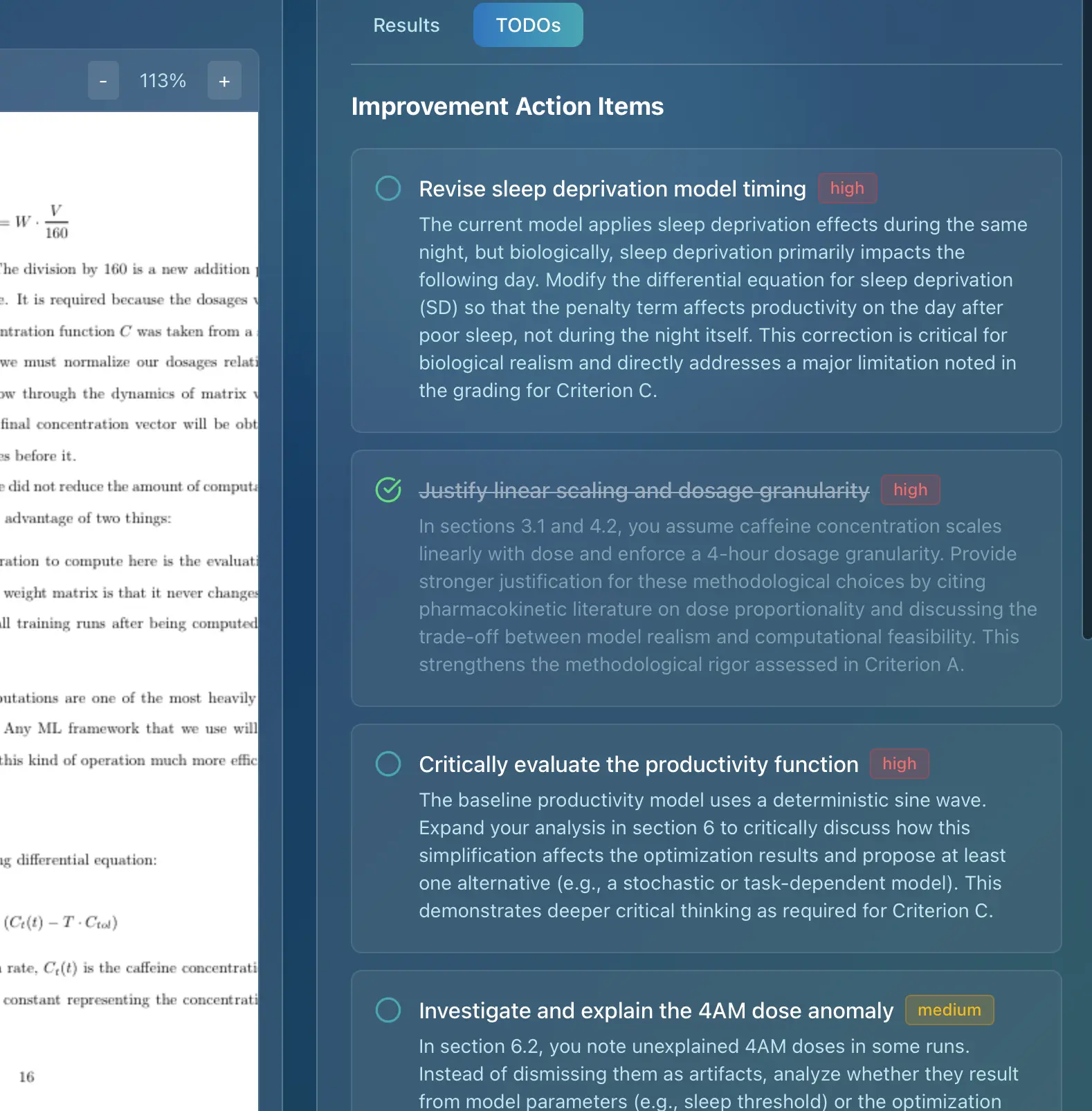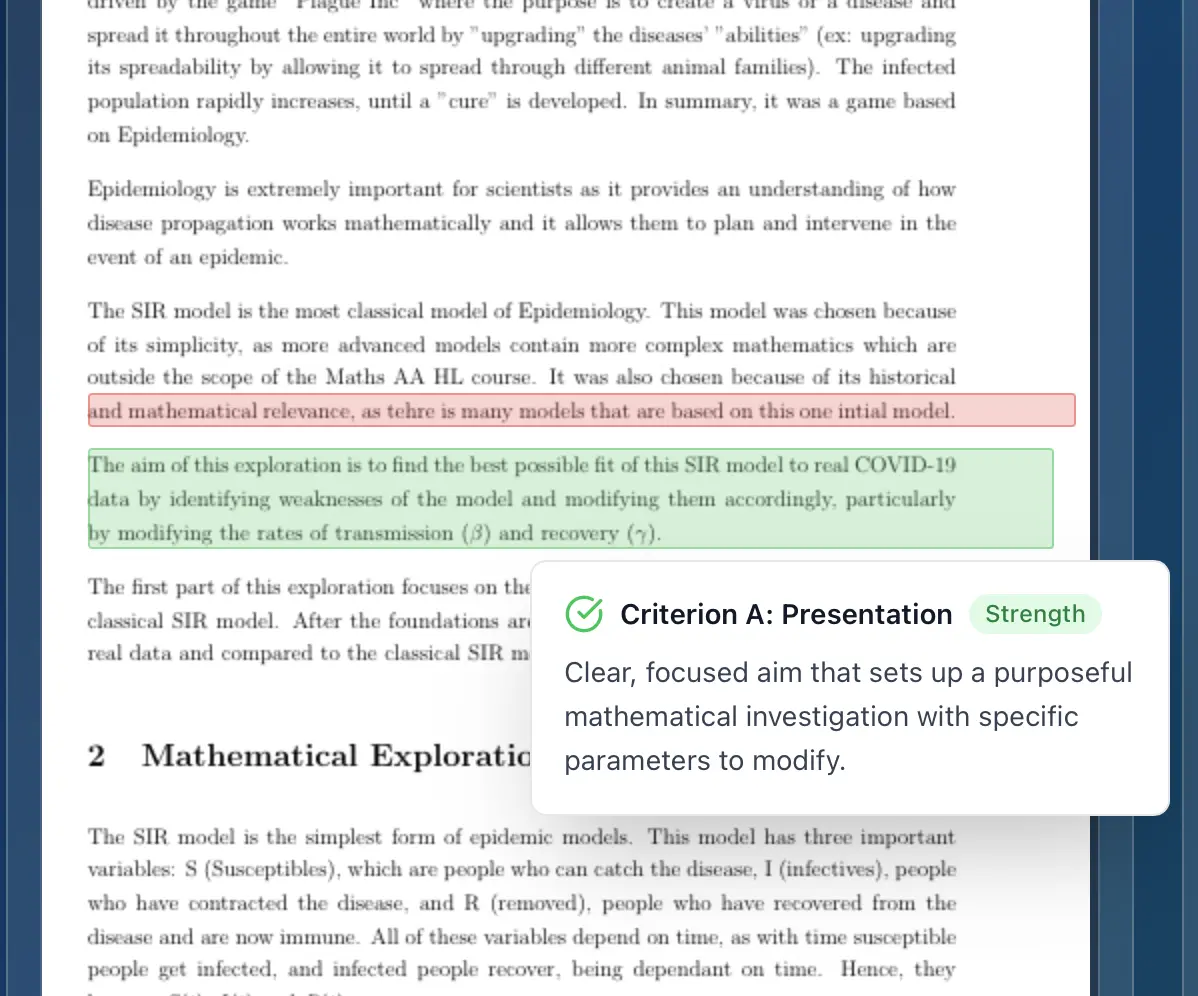Stress Management Techniques for IB Diploma Students
The International Baccalaureate (IB) Diploma Programme is undoubtedly a challenging yet rewarding academic journey. However, the rigorous curriculum, demanding assessments, and high expectations can often lead to significant stress for IB students. This blog post provides a comprehensive guide to effective stress management techniques tailored specifically for IB students, helping you navigate the programme with greater ease and achieve your academic goals while maintaining your well-being. We'll cover everything from time management and study strategies to mindfulness and self-care, equipping you with the tools you need to thrive.
Understanding IB Stressors: Why is the IB so Stressful?
Before diving into solutions, it's crucial to understand the unique stressors associated with the IB Diploma Programme. These often include:
- Heavy Workload: Six subjects, Extended Essay (EE), Theory of Knowledge (TOK), and Creativity, Activity, Service (CAS) create a demanding workload.
- High Expectations: The IB is known for its rigorous standards, placing pressure on students to perform well.
- Time Management Challenges: Balancing academic commitments with extracurricular activities and personal life can be difficult.
- Exam Anxiety: The high-stakes nature of IB exams can trigger significant anxiety.
- Internal Assessment (IA) Pressure: The need to conduct independent research and write detailed reports for IAs can be overwhelming.
- University Application Stress: The IB diploma is a gateway to universities worldwide, adding pressure to achieve high scores.
Struggling with IB Assessments?
Get instant, detailed feedback on your work with AI that understands IB criteria.

Core Stress Management Techniques for IB Students
Here are some actionable stress management techniques you can implement immediately:
1. Effective Time Management: Mastering the IB Schedule
Time management is paramount for IB success. Without it, you'll quickly feel overwhelmed.
- Create a Detailed Schedule: Use a planner (digital or physical) to map out your week, allocating specific time slots for studying, completing assignments, attending extracurricular activities, and relaxing.
- Prioritize Tasks: Identify the most important tasks (e.g., upcoming deadlines, challenging topics) and tackle them first. Use the Eisenhower Matrix (Urgent/Important) to categorize tasks.
- Break Down Large Tasks: Divide large assignments, like the Extended Essay or IAs, into smaller, more manageable steps. This makes the task less daunting and provides a sense of accomplishment as you complete each step. For example, for the EE, break it down into: topic selection, research, outline, first draft, revisions.
- Use Time Blocking: Allocate specific blocks of time for specific subjects or tasks. This helps you stay focused and avoid multitasking, which can reduce productivity.
- Avoid Procrastination: Procrastination is a major stressor. Use techniques like the Pomodoro Technique (25 minutes of focused work followed by a 5-minute break) to overcome procrastination.
- Schedule Breaks: Incorporate regular breaks into your study schedule. Short breaks can help you recharge and improve focus.
2. Study Strategies for IB Success: Working Smarter, Not Harder
Effective study strategies can reduce stress by improving your understanding and retention of information.
- Active Recall: Instead of passively rereading notes, actively recall information by testing yourself, creating flashcards, or teaching the material to someone else.
- Spaced Repetition: Review material at increasing intervals to improve long-term retention. Apps like Anki can help with spaced repetition.
- Concept Mapping: Create visual representations of concepts and their relationships to improve understanding and memory.
- Past Paper Practice: Regularly practice with past IB exam papers to familiarize yourself with the exam format and question types. This also helps identify areas where you need to improve.
- Seek Help When Needed: Don't hesitate to ask your teachers, classmates, or tutors for help when you're struggling with a concept. Early intervention can prevent frustration and stress.
3. Mindfulness and Relaxation Techniques: Finding Calm in the Chaos
Mindfulness and relaxation techniques can help you manage stress and improve your overall well-being.
- Meditation: Practice daily meditation to calm your mind and reduce anxiety. Even a few minutes of meditation can make a difference. Apps like Headspace and Calm offer guided meditations.
- Deep Breathing Exercises: Practice deep breathing exercises to reduce stress and improve focus. The 4-7-8 technique (inhale for 4 seconds, hold for 7 seconds, exhale for 8 seconds) is a simple and effective technique.
- Yoga: Yoga combines physical postures, breathing techniques, and meditation to promote relaxation and reduce stress.
- Progressive Muscle Relaxation: Tense and relax different muscle groups in your body to release tension.
- Mindful Walking: Pay attention to your surroundings and the sensations in your body while walking.
4. Healthy Lifestyle Habits: Fueling Your Body and Mind
A healthy lifestyle is essential for managing stress and maintaining your well-being.
- Balanced Diet: Eat a balanced diet rich in fruits, vegetables, whole grains, and lean protein. Avoid processed foods, sugary drinks, and excessive caffeine.
- Regular Exercise: Engage in regular physical activity to reduce stress, improve mood, and boost energy levels. Aim for at least 30 minutes of moderate-intensity exercise most days of the week.
- Sufficient Sleep: Get enough sleep (7-9 hours per night) to allow your body and mind to rest and recover. Establish a regular sleep schedule and create a relaxing bedtime routine.
- Stay Hydrated: Drink plenty of water throughout the day to stay hydrated and maintain optimal cognitive function.
5. Social Support: Connecting with Others
Connecting with others can provide emotional support and reduce feelings of isolation.
- Talk to Friends and Family: Share your feelings and concerns with trusted friends and family members.
- Join a Study Group: Studying with others can provide motivation, support, and a different perspective on the material.
- Seek Professional Help: Don't hesitate to seek professional help from a counselor or therapist if you're struggling with stress, anxiety, or depression. Your school counselor can provide resources and referrals.
Common Challenges/Mistakes: Avoiding IB Pitfalls
Many IB students make similar mistakes that exacerbate stress. Here's how to avoid them:
- Perfectionism: Striving for perfection can lead to excessive stress and anxiety. Focus on doing your best, but accept that mistakes are part of the learning process.
- Comparing Yourself to Others: Comparing yourself to your classmates can lead to feelings of inadequacy and stress. Focus on your own progress and celebrate your achievements.
- Ignoring Your Needs: Neglecting your physical and emotional needs can lead to burnout. Prioritize self-care and make time for activities you enjoy.
- Waiting Until the Last Minute: Procrastinating on assignments and studying until the last minute can lead to panic and stress. Start early and break down tasks into smaller steps.
- Not Seeking Help: Being afraid or unwilling to ask for help when you're struggling can lead to frustration and stress. Don't hesitate to reach out to your teachers, classmates, or counselors for support.
Pro Tip: Get AI-Powered Grading
Stop second-guessing your grades. Get instant feedback aligned with official IB rubrics.

Advanced Tips/Strategies: Mastering the IB Mindset
These advanced strategies can help you not just survive, but thrive in the IB:
- Develop a Growth Mindset: Embrace challenges as opportunities for growth and learning. View setbacks as temporary and focus on improving your skills and knowledge.
- Practice Self-Compassion: Treat yourself with kindness and understanding, especially when you're struggling. Acknowledge your feelings and avoid self-criticism.
- Set Realistic Goals: Set achievable goals that are aligned with your abilities and interests. Avoid setting unrealistic expectations that can lead to disappointment and stress.
- Learn to Say No: Don't overcommit yourself to too many activities. Learn to say no to requests that will add to your stress and overwhelm you.
- Cultivate Gratitude: Focus on the positive aspects of your life and express gratitude for the things you have. This can help improve your mood and reduce stress.
Technology and Modern Assessment: Leveraging AI for IB Success
Technology is transforming the landscape of IB assessment, offering new tools and resources to both students and teachers. AI-powered platforms are emerging as valuable aids in improving understanding and reducing workload.
For instance, Marksy is an AI grading assistant specifically designed for the International Baccalaureate (IB). It provides instant, accurate, and detailed feedback on student work based on official IB rubrics. This helps students understand exactly how to improve their work, reducing anxiety around assessments.
Marksy's key features include:
- Rubric-aligned scoring: Ensures that assessments are graded according to official IB criteria.
- Detailed criterion-by-criterion feedback: Provides specific insights into student performance in each area.
- Suggestions for improvement: Offers actionable advice on how students can improve their work.
For teachers, Marksy saves significant time by automating the grading process and providing consistent, detailed feedback. This allows educators to focus on providing personalized support to students and addressing their individual needs. The use of AI also ensures fairness and consistency in grading, as the platform adheres strictly to official IB rubrics. By using AI tools like Marksy, teachers can reduce their workload and provide more effective feedback, ultimately contributing to a less stressful learning environment for both themselves and their students.
The integration of AI in IB assessment reflects a shift towards more data-driven and personalized learning experiences. By leveraging technology, students can gain a deeper understanding of their strengths and weaknesses, while teachers can provide more targeted support and guidance.
Conclusion: Mastering Stress and Thriving in the IB
The IB Diploma Programme is a challenging but ultimately rewarding experience. By implementing the stress management techniques outlined in this blog post, you can navigate the programme with greater ease and achieve your academic goals while maintaining your well-being. Remember to prioritize time management, effective study strategies, mindfulness, a healthy lifestyle, and social support. Embrace a growth mindset, practice self-compassion, and don't hesitate to seek help when needed.
Ready to experience a less stressful IB journey? Try Marksy for free today and see how AI can help you improve your IB scores or streamline your grading workflow!